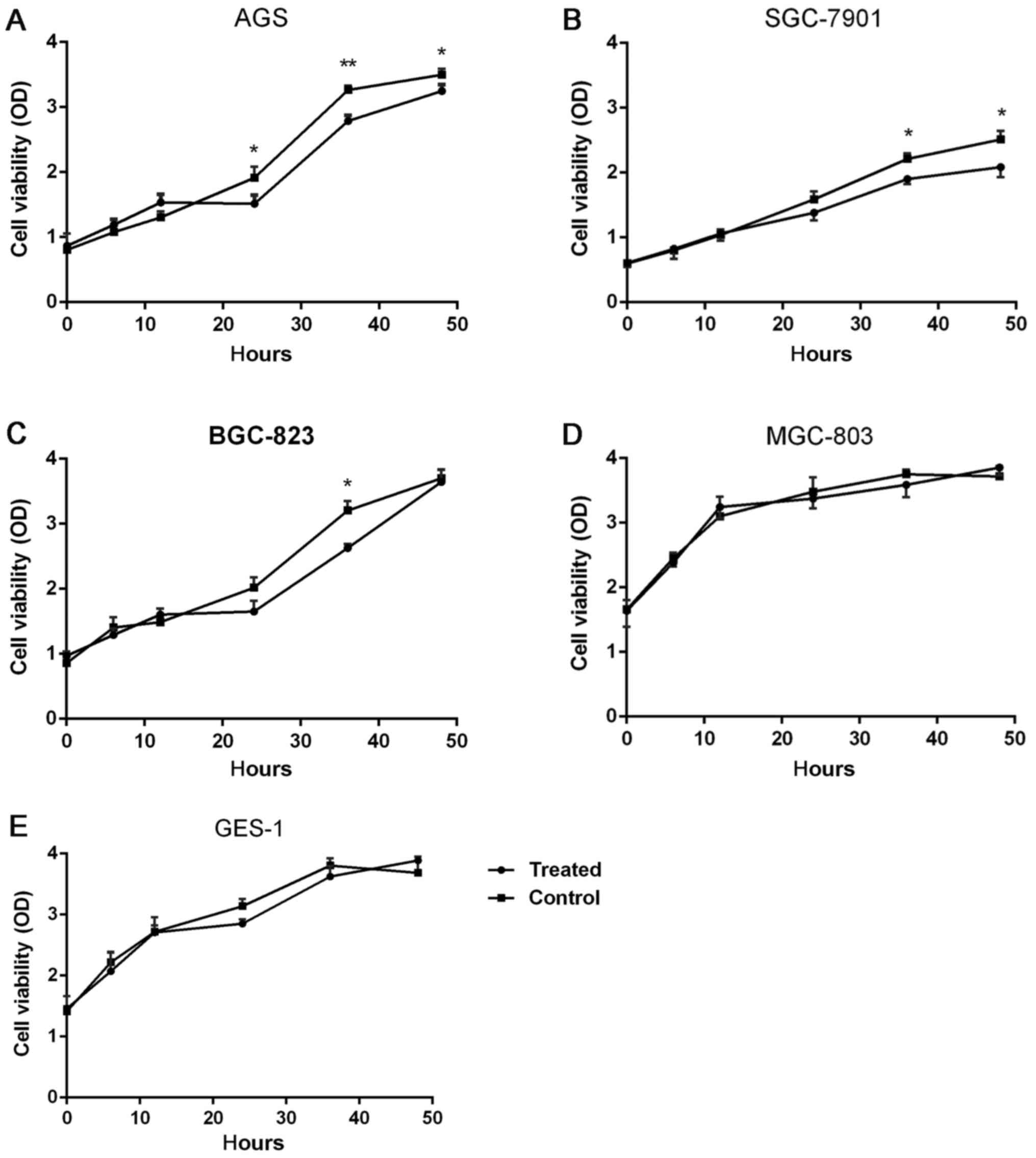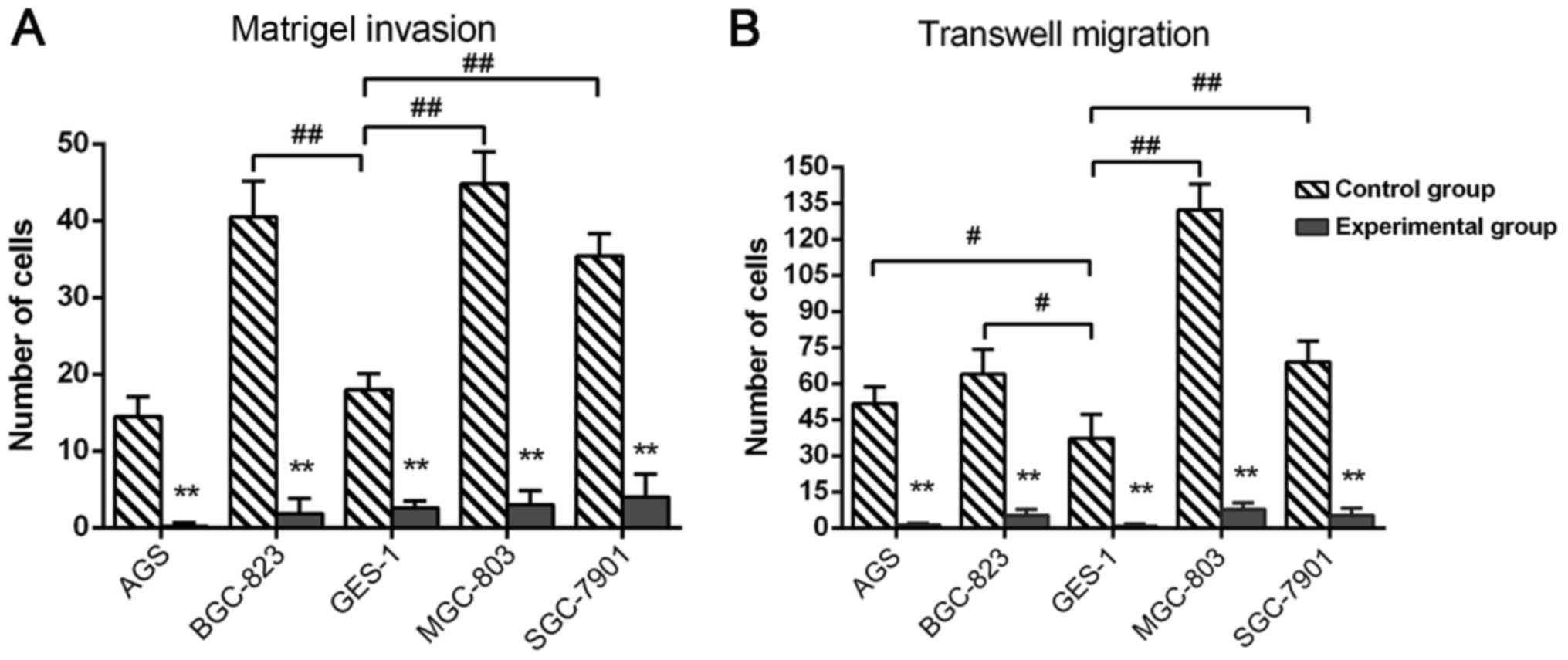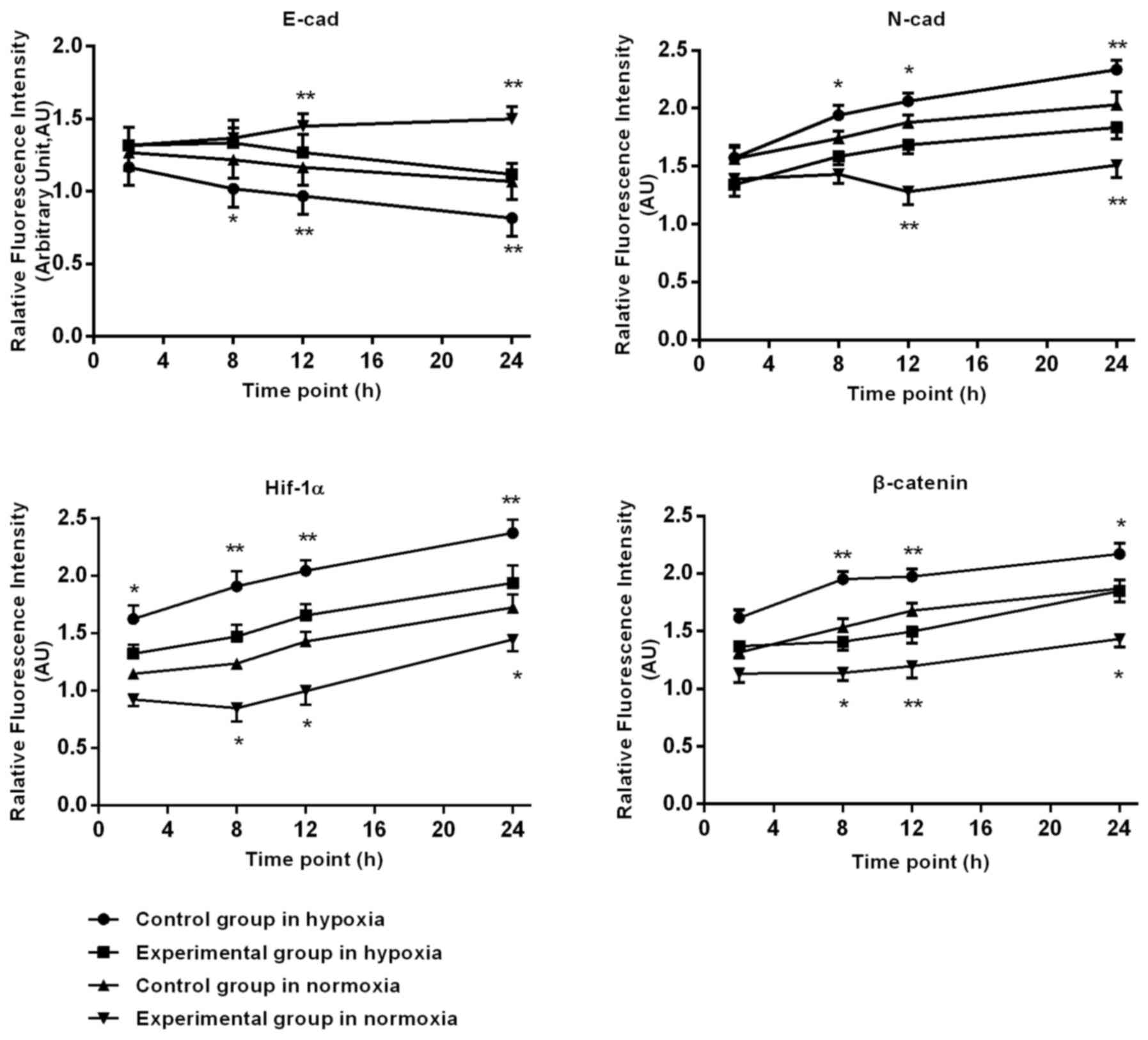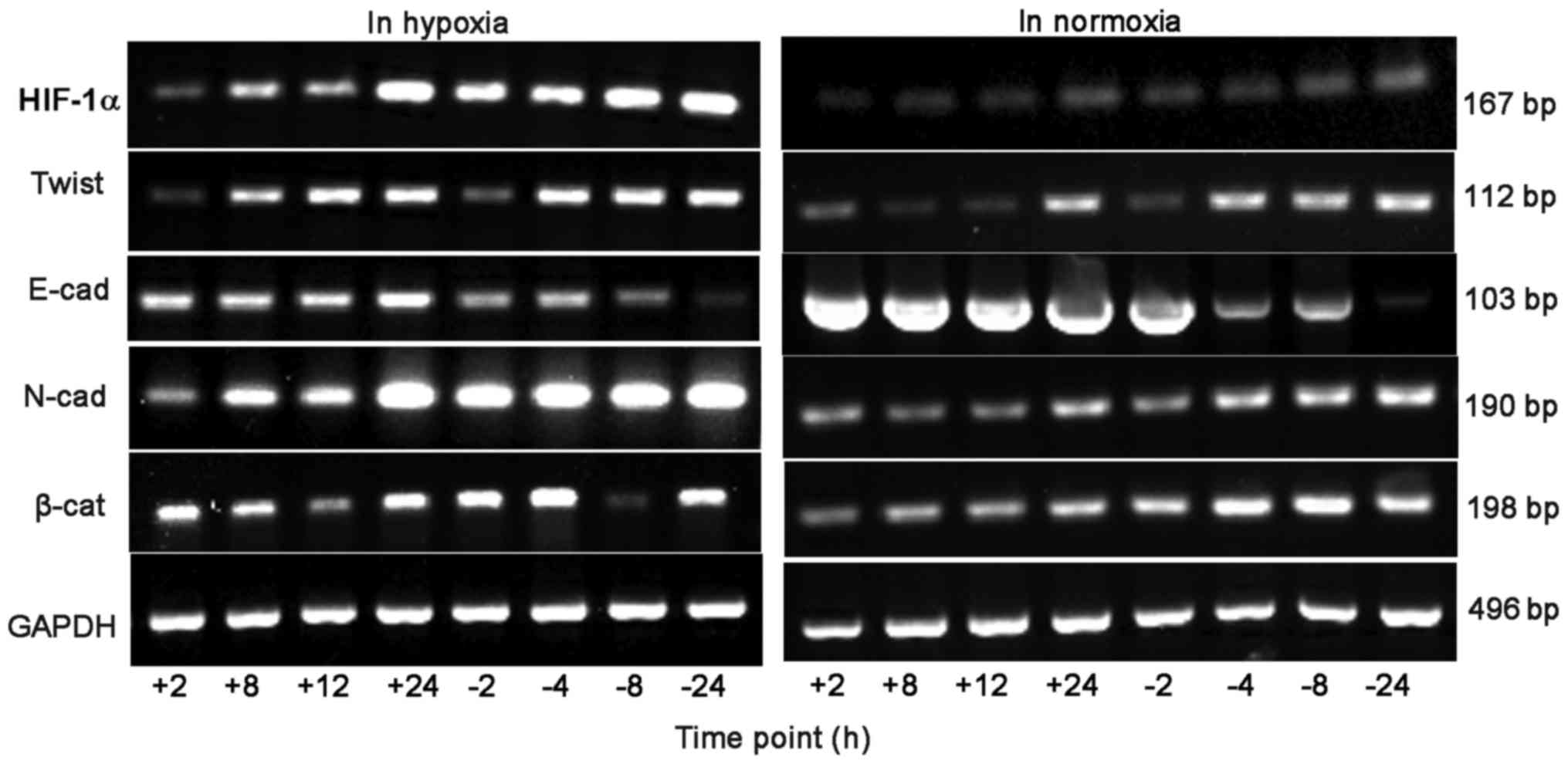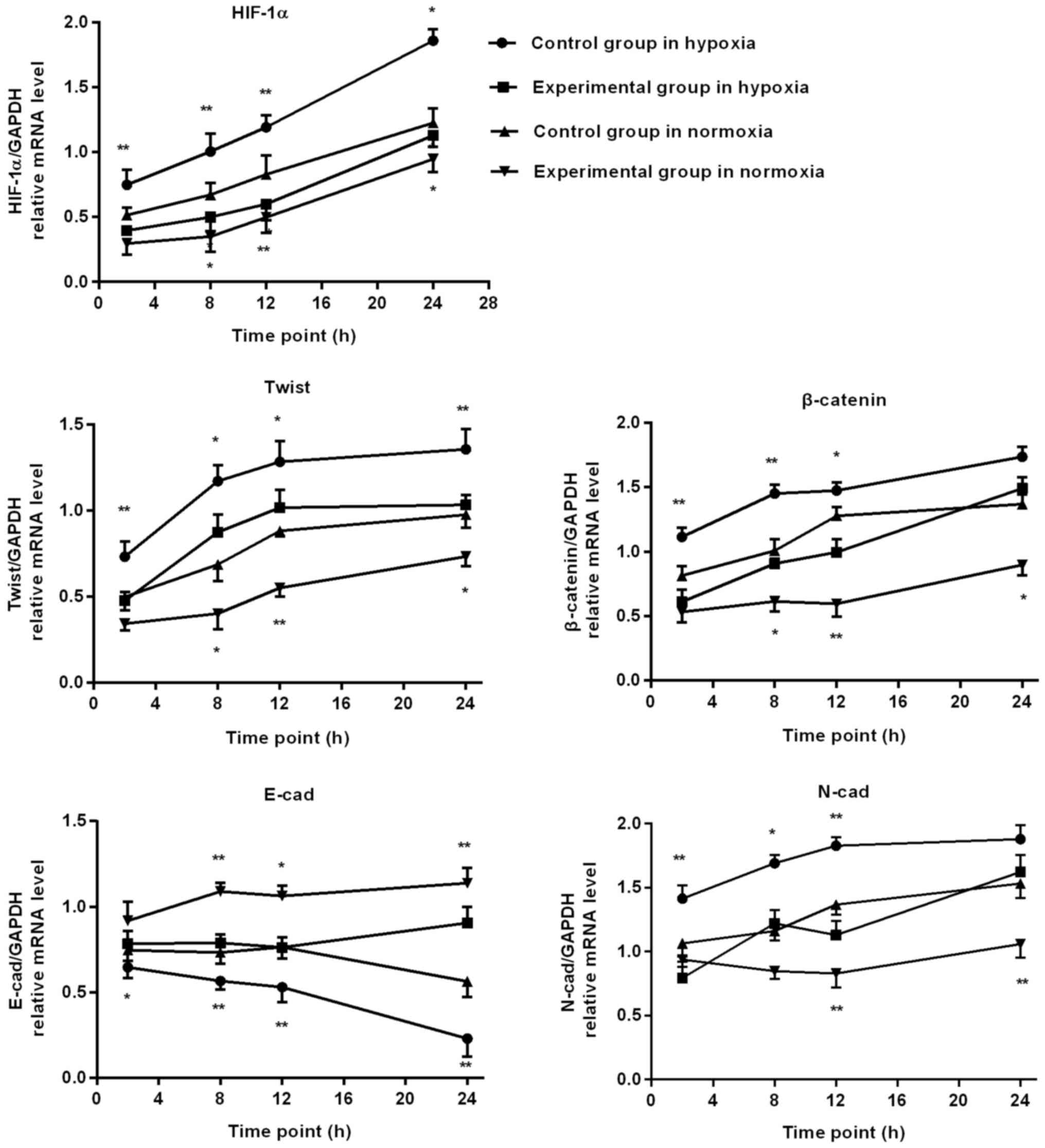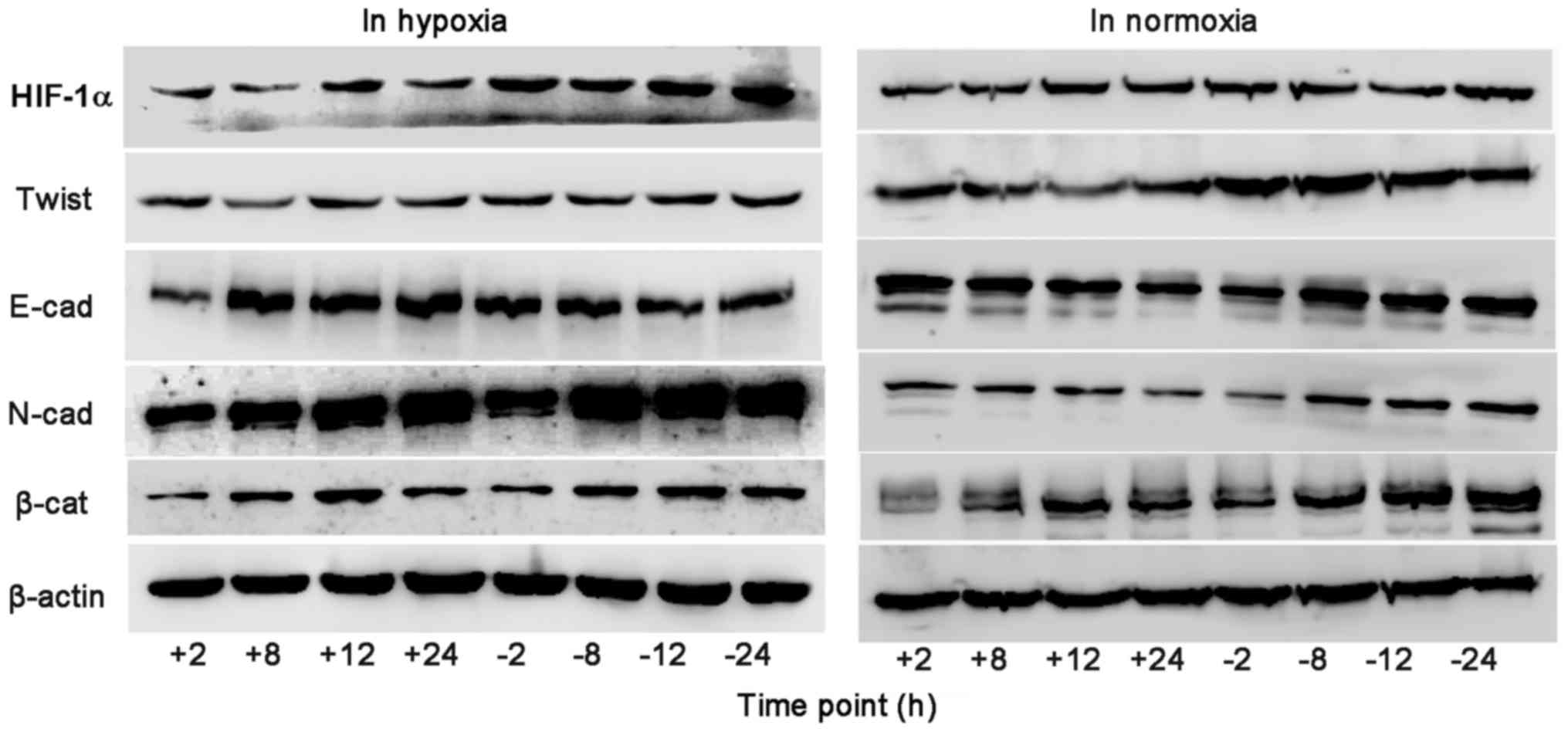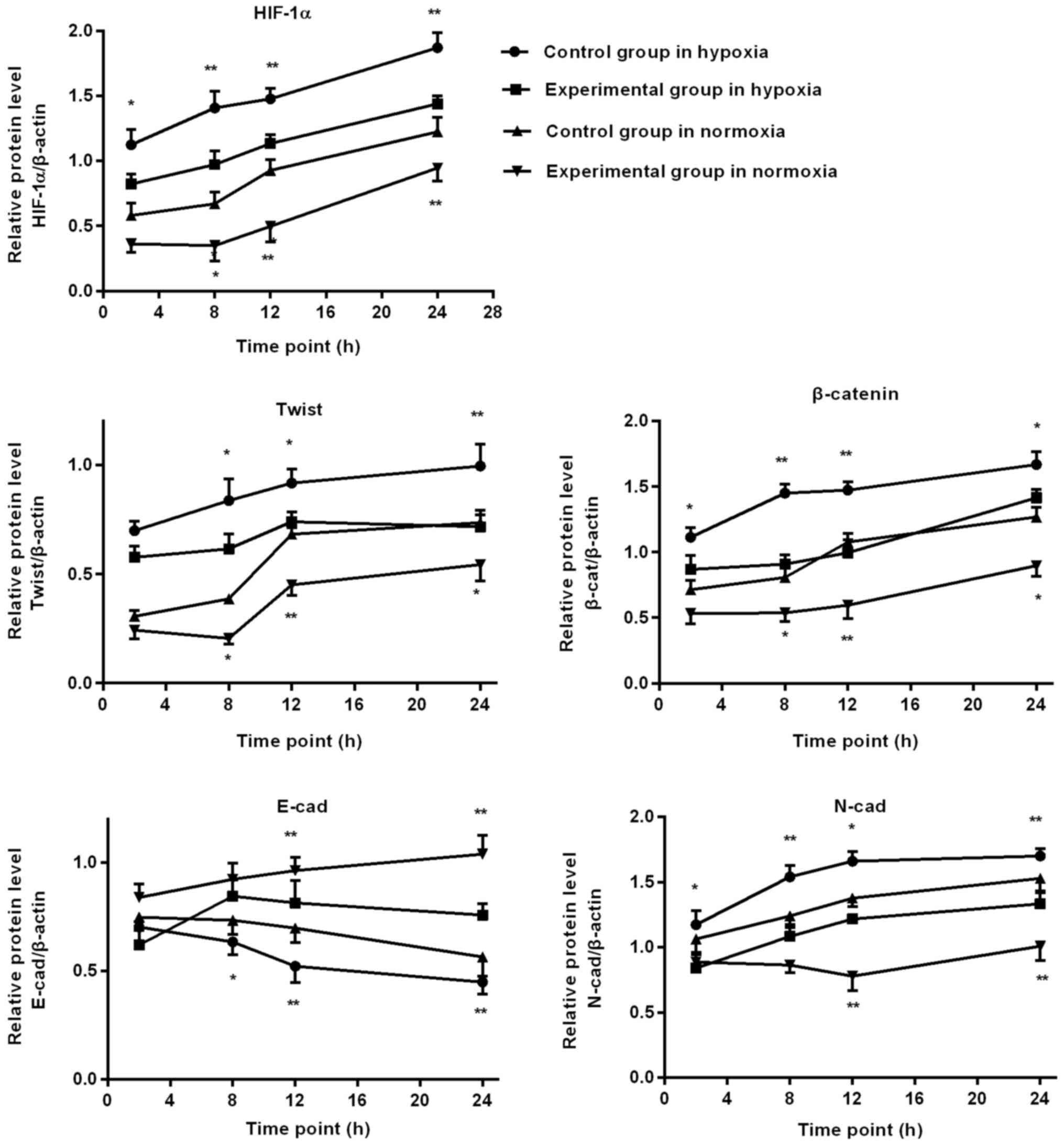|
1
|
Jemal A, Bray F, Center MM, Ferlay J, Ward
E and Forman D: Global cancer statistics. CA-Cancer J Clin.
61:69–90. 2011. View Article : Google Scholar : PubMed/NCBI
|
|
2
|
Shen L, Shan YS, Hu HM, Price TJ, Sirohi
B, Yeh KH, Yang YH, Sano T, Yang HK, Zhang X, et al: Management of
gastric cancer in Asia: Resource-stratified guidelines. Lancet
Oncol. 14:e535–e547. 2013. View Article : Google Scholar : PubMed/NCBI
|
|
3
|
Takagi T, Sakakura C, Kin S, Nakase Y,
Fukuda K, Shimomura K, Ito T, Fujiyama J, Yamasaki J, Tsujimoto H,
et al: Dextran sulfate suppresses cell adhesion and cell cycle
progression of melanoma cells. Anticancer Res. 25:895–902.
2005.PubMed/NCBI
|
|
4
|
Xu YY, Huang YN, Wang HH and Liu Y:
Inhibition of the peritoneal metastasis of human gastric cancer
cells by dextran sulphate in vivo and in vitro. Oncol Lett.
11:2384–2390. 2016. View Article : Google Scholar : PubMed/NCBI
|
|
5
|
Xu Y, Jin X, Huang Y, Dong J, Wang H, Wang
X and Cao X: Inhibition of peritoneal metastasis of human gastric
cancer cells by dextran sulphate through the reduction in HIF-1α
and ITGβ1 expression. Oncol Rep. 35:2624–2634. 2016. View Article : Google Scholar : PubMed/NCBI
|
|
6
|
Gurzu S, Turdean S, Kovecsi A, Contac AO
and Jung I: Epithelial-mesenchymal, mesenchymal-epithelial, and
endothelial-mesenchymal transitions in malignant tumors: An update.
World J Clin Cases. 3:393–404. 2015. View Article : Google Scholar : PubMed/NCBI
|
|
7
|
Daly CS, Flemban A, Shafei M, Conway ME,
Qualtrough D and Dean SJ: Hypoxia modulates the stem cell
population and induces EMT in the MCF-10A breast epithelial cell
line. Oncol Rep. 39:483–490. 2018.PubMed/NCBI
|
|
8
|
Noman MZ, Messai Y, Carré T, Akalay I,
Méron M, Janji B, Hasmim M and Chouaib S: Microenvironmental
hypoxia orchestrating the cell stroma cross talk, tumor progression
and antitumor response. Crit Rev Immunol. 31:357–377. 2011.
View Article : Google Scholar : PubMed/NCBI
|
|
9
|
Bao B, Wang Z, Ali S, Kong D, Li Y, Ahmad
A, Banerjee S, Azmi AS, Miele L and Sarkar FH: Notch-1 induces
epithelial-mesenchymal transition consistent with cancer stem cell
phenotype in pancreatic cancer cells. Cancer Lett. 307:26–36. 2011.
View Article : Google Scholar : PubMed/NCBI
|
|
10
|
Goggins BJ, Chaney C, Radford-Smith GL,
Horvat JC and Keely S: Hypoxia and integrin-mediated epithelial
restitution during mucosal inflammation. Front Immunol. 4:2722013.
View Article : Google Scholar : PubMed/NCBI
|
|
11
|
Peng Z, Wang CX, Fang EH, Wang GB and Tong
Q: Role of epithelial-mesenchymal transition in gastric cancer
initiation and progression. World J Gastroenterol. 20:5403–5410.
2014. View Article : Google Scholar : PubMed/NCBI
|
|
12
|
Fu F, Hu H, Yang S and Liang X: Effects of
TIN2 on telomeres and chromosomes in the human gastric epithelial
cell line GES-1. Oncol Lett. 15:5161–5166. 2018.PubMed/NCBI
|
|
13
|
Goto A, Nishikawa J, Hideura E, Ogawa R,
Nagao M, Sasaki S, Kawasato R, Hashimoto S, Okamoto T, Ogihara H,
et al: Lymph node metastasis can be determined by just tumor depth
and lymphovascular invasion in early gastric cancer patients after
endoscopic submucosal dissection. Eur J Gastroenterol Hepatol.
29:1346–1350. 2017. View Article : Google Scholar : PubMed/NCBI
|
|
14
|
Hou XH: The expression of HORMAD2 and the
effects of it on proliferation and apoptosis on gastric cancer cell
(D). Lanzhou Univ. 2015.
|
|
15
|
Weili Xu: The effect of lysine
(K)-specific demethylase 1A on invasion and metastasis of gastric
cancer and its associated mechanism (D). Central South Univ.
2014.
|
|
16
|
Zheng L, Hu X, Huang Y, Xu G, Yang J and
Li L: In vivo bioengineered ovarian tumors based on collagen,
matrigel, alginate and agarose hydrogels: A comparative study.
Biomed Mater. 10:0150162015. View Article : Google Scholar : PubMed/NCBI
|
|
17
|
Cheng XX, Wang ZC, Chen XY, Sun Y, Kong
QY, Liu J, Gao X, Guan HW and Li H: Frequent loss of membranous
E-cadherin in gastric cancers: A cross-talk with Wnt in determining
the fate of beta-catenin. Clin Exp Metastasis. 22:85–93. 2005.
View Article : Google Scholar : PubMed/NCBI
|
|
18
|
Dong Li: Expression of β-catenin-the
Central Regulation Molecule of the Wnt Signaling Pathways in
gastric cancer and its significance (D). Nanchang Univ. 2014.
|
|
19
|
Zhang Z, Bu X, Chen H, Wang Q and Sha W:
Bmi-1 promotes the invasion and migration of colon cancer stem
cells through the downregulation of E-cadherin. Int J Mol Med.
38:1199–1207. 2016. View Article : Google Scholar : PubMed/NCBI
|
|
20
|
Huelsken J and Behrens J: The Wnt
signalling pathway. J Cell Sci. 115:3977–3978. 2002. View Article : Google Scholar : PubMed/NCBI
|
|
21
|
Kalluri R and Weinberg R: The basics of
epithelial-mesenchymal transition. J Clin Invest. 119:1420–1428.
2009. View
Article : Google Scholar : PubMed/NCBI
|
|
22
|
Ashaie MA and Chowdhury EH: Cadherins: The
superfamily critically involved in breast cancer. Curr Pharm Des.
22:616–638. 2016. View Article : Google Scholar : PubMed/NCBI
|
|
23
|
Zhang X, Liu G, Kang Y, Dong Z, Qian Q and
Ma X: N-cadherin expression is associated with acquisition of EMT
phenotype and with enhanced invasion in erlotinib-resistant lung
cancer cell lines. PLoS One. 8:e576922013. View Article : Google Scholar : PubMed/NCBI
|
|
24
|
Wu S, Luo Z, Yu PJ, Xie H and He YW:
Suberoylanilide hydroxamic acid (SAHA) promotes the epithelial
mesenchymal transition of triple negative breast cancer cells via
HDAC8/FOXA1 signals. Biol Chem. 397:75–83. 2016. View Article : Google Scholar : PubMed/NCBI
|















